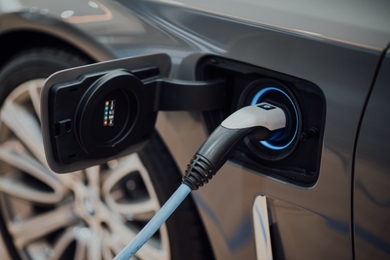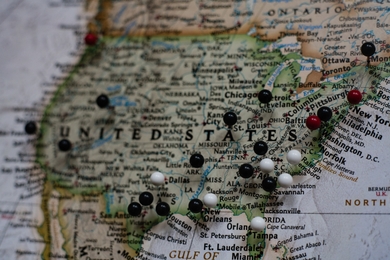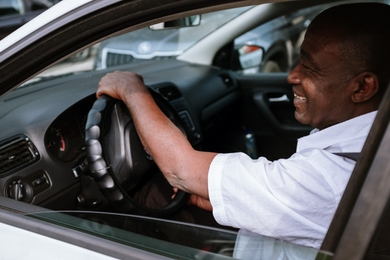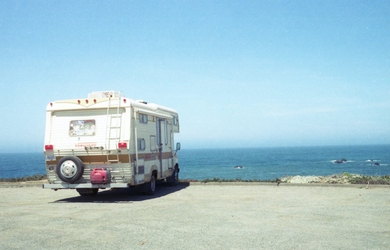PIP (Personal Injury Protection) Insurance & Coverage | Gabi

You already know that having a valid auto insurance policy is mandatory if you want to get behind the wheel of a car. But while liability coverage is the only requirement in most states, some will also mandate that you carry a certain level of personal injury protection (PIP) insurance.
Even if your state doesn’t require you to have PIP insurance, though, it’s something you may want to consider. This additional coverage can protect you and your passengers if anyone were to be injured in a car accident.
What is PIP Coverage?
Personal injury protection, or PIP, is a subset of auto insurance coverage. It is also sometimes referred to as “no-fault insurance,” because it is a type of coverage necessary to cover drivers who live in no-fault insurance states, where your own insurance will cover your medical expenses regardless of who is at-fault for the accident.
In no-fault insurance states, PIP coverage (or no-fault insurance) is mandatory. That’s because this insurance is used to cover your medical expenses and those of your passengers if you’re involved in a motor vehicle accident. The states requiring PIP coverage include Arkansas, Delaware, Florida, Hawaii, Kansas, Kentucky, Maryland, Massachusetts, Michigan, Minnesota, New Jersey, New York, North Dakota, Oregon, Pennsylvania, and Utah.
Where PIP insurance is required, you’ll find state-mandated coverage limits, the same as with liability coverage. And just like with liability coverage, you’ll also have the option to purchase coverage above those minimum limits, to protect yourself and your loved ones even further.
It’s Not Always Required (or Available)
In some states, PIP is available but completely optional. You can choose to purchase PIP insurance or not, depending on the level of coverage you want for yourself and your passengers. The states offering, but not requiring you to purchase, PIP insurance include New Hampshire, South Dakota, Texas, Virginia, Washington, Washington DC, and Wisconsin.
However, in the remainder of the states, PIP coverage isn’t even an option when purchasing auto insurance. There, you’ll rely on the bodily injury liability limits mandated by the state, as well as any optional medical payments coverage you may have purchased. If you’re in an accident, the at-fault driver’s insurance will take care of your medical bills and related expenses (even if it’s your own), up to their coverage limits.
PIP Insurance Benefits
If you’re in a state that requires you to purchase PIP insurance coverage, you’ll be subject to minimum coverage requirements. You are able to purchase coverage beyond those minimums, if you’d like, offering protection for things like:
- Hospitalizations, surgery, and other acute care
- Accident-related dental care
- Long-term/ongoing medical expenses
- Accidental death benefits and funeral costs
- Lost wages
- Some home expenses, such as cleaning services and childcare
These expenses may be covered for you and your passengers, regardless of which driver is at-fault for the accident.
What PIP Insurance Doesn’t Cover
Whether or not you’re in a no-fault state, there are a few things that your PIP coverage will not include.
- PIP insurance does not cover damage to vehicles, whether yours or the other driver’s.
- PIP insurance does not cover theft or vandalism of your vehicle (you’ll need comprehensive coverage for that).
- You can potentially exceed your PIP coverage limits, at which point the insurer will stop paying.
In order to be protected for these situations, you’ll need to ensure that you set high enough PIP coverage limits and hold collision/comprehensive coverage. Finding the right insurance policy at a competitive rate can make it easier to carry as much coverage as you need, without breaking the bank.
What About My Health Insurance?
If you’re injured in a car accident, your health insurance typically isn’t the first coverage to kick in. Instead, the at-fault driver’s insurance — or your own PIP coverage — will initially pay. If there are expenses remaining once you’ve exhausted the auto insurance limits, your personal health insurance will usually step in to cover them.
However, it’s important to note that while auto insurance coverage often pays for things like lost wages, funeral costs, and sometimes even home expenses (like cleaning services and childcare while you recover), these are not usually covered by your personal health insurance.
Should I Buy PIP Coverage?
In many states — the 16 mentioned above — you won’t have a choice on whether or not to purchase PIP insurance. It’s state-mandated, just like liability auto insurance and things like vehicle registration. Without it, you’ll be considered an uninsured (or underinsured) driver and, therefore, it’ll be illegal if you get behind the wheel.
In other areas, though (like the seven we listed), PIP insurance is optional. If you can afford to add it to your auto insurance policy, it’s a very wise decision: not only will it protect you and your passengers regardless of the accident you’re involved in, but it also steps in to cover things that your standard policy (and health insurance) may not.
No one ever expects to be involved in an auto accident, but the fact of the matter is, they happen every single day. By purchasing the coverage that best protects you and your loved ones — whether or not that includes PIP insurance — you can ensure that your recovery is as easy and stress-free as possible were one to occur.









